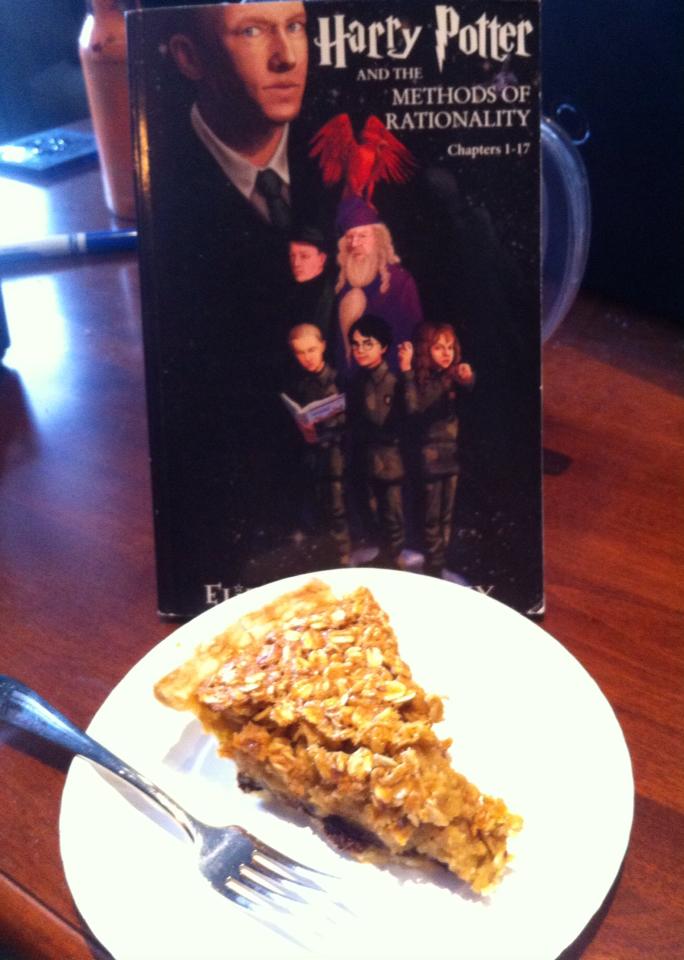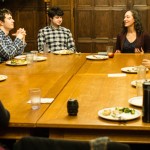You can listen to “Fights in Good Faith,” my weekly radio program, streaming today at 5pm ET and tomorrow (Sun) at 1pm I’ll update this post when the episode is available to stream and download on demand. After Terry Pratchett passed away this week, I wanted to take some time to talk about how his Discworld books shaped my conscience.  Every week, I put up a “Radio Readings” post, so you can track down the books, articles, and (this week) non-violent resistance movements that I cite on the show. So, without further ado, here’s what I’m talking about this week.
Every week, I put up a “Radio Readings” post, so you can track down the books, articles, and (this week) non-violent resistance movements that I cite on the show. So, without further ado, here’s what I’m talking about this week.
The Small (and Petty!) Gods of Discworld (Small Gods)
- This section is rooted in Small Gods, the first Discworld book I ever read
- In that book, Pratchett explores a religion that has made an idol of its ritual and lost its god. In Strange Gods, Elizabeth Scalia describes how we can recognize and resist this tendency in our own lives.
- Trolleyology is the name for the study of trolley problem-like questions — moral hypotheticals of varying usefulness. (My friends and I do sell a trolleyology related t-shirt)
Religion that’s “In Me Like a Fever” (Witches Abroad, Carpe Jugulum)
- Granny Weatherwax on why belief in God is the most boring aspect of a relationship to God
- Granny again on what religion that takes root in your soul would really look like
- A New Yorker feature on nuns (and others) in the Plowshares movement, who resist nuclear arms by getting themselves arrested
- I recently read The New Jim Crow: Mass Incarceration in the Age of Colorblindness which wound up being an example of an evil I’m not sure how to oppose
“They Starts with Thinking of People as Things” (Carpe Jugulum)
- Granny Weatherwax gave me my most reliable moral test for my actions (and failures to act)
- Thinking about whether I was treating people as things helped me change my plans about the Senior Class Gift
The High Stakes of Small Lives (Men at Arms, Night Watch)
- Harry Potter and the Methods of Rationality wrapped up today, and featured a much smarter than usual Harry and, accordingly, the author said, everyone else had to be upgraded as well.
Rule One: If you do anything to increase the protagonist’s power, or make their life easier, you must also amplify their opponent or add extra difficulties to their life. You can’t make Frodo a Jedi unless you give Sauron the Death Star. Otherwise, even if it is well-written in all other ways, your story will suck because the reader will know to expect an unending string of easy victories, leading them to neither wonder or care about what happens next. The Mary Sue is not defined by her power being too strong, but by her challenges being too easily overcome.
- Discworld did a great job making some lower-stakes problems important (Sam Vimes is, at baseline, a policeman). Even when the plot is large (as in Night Watch, when he travels in time and needs to return home, with the murderer he’s pursuing, sans paradoxes), his life is still a series of small choices with bigger ramification for the people he interacts with (i.e. when he defuses a burgeoning riot). When Pratchett increased Vimes’s powers and increased the power of his enemies, I was a little less interested (looking at you, Snuff) because Pratchett’s characters had the gift of taking all their decisions seriously, not just the epic feeling ones.
I did wind up going to an HPMOR wrap party today, and I made Black-Hearted Oatmeal Pie, since the end of the story fell on Pi Day.

















